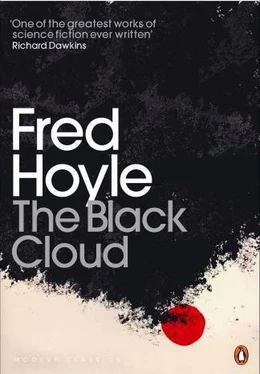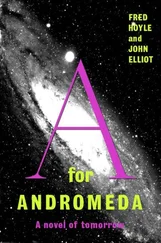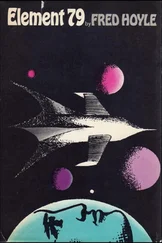Fred Hoyle - The Black Cloud
Здесь есть возможность читать онлайн «Fred Hoyle - The Black Cloud» весь текст электронной книги совершенно бесплатно (целиком полную версию без сокращений). В некоторых случаях можно слушать аудио, скачать через торрент в формате fb2 и присутствует краткое содержание. Жанр: Фантастика и фэнтези, на английском языке. Описание произведения, (предисловие) а так же отзывы посетителей доступны на портале библиотеки ЛибКат.
- Название:The Black Cloud
- Автор:
- Жанр:
- Год:неизвестен
- ISBN:нет данных
- Рейтинг книги:5 / 5. Голосов: 1
-
Избранное:Добавить в избранное
- Отзывы:
-
Ваша оценка:
- 100
- 1
- 2
- 3
- 4
- 5
The Black Cloud: краткое содержание, описание и аннотация
Предлагаем к чтению аннотацию, описание, краткое содержание или предисловие (зависит от того, что написал сам автор книги «The Black Cloud»). Если вы не нашли необходимую информацию о книге — напишите в комментариях, мы постараемся отыскать её.
The Black Cloud — читать онлайн бесплатно полную книгу (весь текст) целиком
Ниже представлен текст книги, разбитый по страницам. Система сохранения места последней прочитанной страницы, позволяет с удобством читать онлайн бесплатно книгу «The Black Cloud», без необходимости каждый раз заново искать на чём Вы остановились. Поставьте закладку, и сможете в любой момент перейти на страницу, на которой закончили чтение.
Интервал:
Закладка:
“Perhaps he won’t but I’d still prefer to use the recording.”
And so the recording was transmitted. At the end came the message:
“Very interesting. Please repeat the first part at a speed increased by thirty per cent.”
When this had been done, the next message was:
“Better. Very good. I intend to think this over. Good-bye.”
“My God, you’ve finished him, Ann!’ exclaimed Marlowe.
“It defeats me how music can have any appeal for Joe. After all, music is sound and we’ve agreed that sound oughtn’t to mean anything to him,” remarked Parkinson.
“I don’t agree there,” said McNeil. “Our appreciation of music has really nothing to do with sound, although I know that at first sight it seems otherwise. What we appreciate in the brain are electrical signals that we receive from the ears. Our use of sound is simply a convenient device for generating certain patterns of electrical activity. There is indeed a good deal of evidence that musical rhythms reflect the main electrical rhythms that occur in the brain.”
“That’s very interesting, John,” Kingsley exclaimed. “So you might say that music gives the most direct expression of the activities of our brains.”
“No, I wouldn’t put it as strongly as that. I would say that music gives the best index of the large-scale patterns in the brain. But words give a better index of the fine-scale patterns.”
And so the discussion continued until far into the night. All aspects of the Cloud’s statements were argued over. Perhaps the most striking remark came from Ann Halsey.
“The first movement of the B flat major Sonata bears a metronome marking requiring a quite fantastic pace, far faster than any normal pianist can achieve, certainly far faster than I can manage. Did you notice that request for an increase of speed? It makes me feel a little shivery, although probably it was only some queer coincidence, I suppose.”
At this stage it became generally agreed that information concerning the Cloud’s real nature should be passed to the political authorities. Various Governments were again getting radio communication to work. It was found that, provided a three-centimetre transmission was propagated vertically, the ionization in the atmosphere could be maintained at a value favourable for communication at a wave-length of about ten centimetres. Once more Nortonstowe became an information clearing-house.
Nobody was really happy at disseminating information about the Cloud. Everybody felt that communication with the Cloud would be taken out of Nortonstowe’s control. And there was so much that the scientists wished to learn. Kingsley was strongly opposed to passing information to the political authorities, but on this point he was overruled by general opinion, which felt that, regrettable as it might be, secrecy should no longer be maintained.
Leicester had made recordings of the conversations with the Cloud and these were broadcast over the ten-centimetre channels. Governments everywhere had no scruples themselves about maintaining secrecy however. The man-in-the-street never learned of the existence of life in the Cloud, for as time went on events took such a turn as to make secrecy quite imperative.
No Government at this time possessed a one-centimetre transmitter and receiver of appropriate design. For the time being at least, therefore, communication with the Cloud had to be made from Nortonstowe. Technicians in the U.S. pointed out, however, that ten-centimetre transmission to Nortonstowe and thence by one centimetre would allow the U.S. Government and others to establish contact with the Cloud. It was decided that Nortonstowe should become a clearing-house, not only for conveying information over the Earth but also for communication with the Cloud.
The personnel at Nortonstowe divided into two roughly equal camps. Those who supported Kingsley and Leicester wished to veto the politicians’ plan openly and violently by telling the various Governments to go to hell. The others, led by Marlowe and Parkinson, argued that nothing was to be gained by such defiance, since the politicians could if necessary secure their own way by main force. A few hours before a communication from the Cloud was expected the argument between the two groups became acute. It was resolved by compromise. It was decided that a technical hitch would prevent any ten-centimetre transmissions being received at Nortonstowe. Thus the Governments would be able to hear the Cloud, but they wouldn’t be able to talk to it.
And so it came to pass. That day the highest and most honoured of the human species listened to the Cloud and were unable to reply. It turned out that the Cloud made a bad impression on its august audience, for Joe began talking frankly about sex.
“Will you please resolve this paradox?’ he said. “I notice that a very large portion of your literature is concerned with what you call “love”, “profane love” mostly. Indeed, from the specimens available to me I estimate that nearly forty per cent of literature is concerned with this subject. Yet nowhere in literature could I find out what “love” consists of, always the issue is very carefully avoided. This led me to believe that “love” must be some rare remarkable process. Can you imagine my surprise when at last I learnt from medical textbooks that “love” is only a very simple ordinary process shared by a great variety of other animals?”
There were some protests at these remarks from the highest and most honoured of the human species. They were silenced by Leicester who cut their transmissions from the loud-speakers.
“Aw, dry out,” he said. Then he handed a microphone to McNeil. “I reckon this is your turn, John. You’d better try to give Joe an answer.”
McNeil did his best:
“Viewed from a wholly logical point of view the bearing and rearing of children is a thoroughly unattractive proposition. To a woman it means pain and endless worry. To a man it means extra work extending over many years to support his family. So, if we were wholly logical about sex, we should probably not bother to reproduce at all. Nature takes care of this by making us utterly and wholly irrational. If we were not irrational we simply wouldn’t be able to survive, contradictory as this may sound. It’s probably the same with all the other animals too.”
Joe was speaking again:
“This irrationality, which I suspected and which I am glad to hear you recognize, has a serious, more grim, aspect. I have already warned you that the supply of chemical foods is pitifully limited on your planet. It is only too likely that an irrational attitude towards reproduction will lead to more individuals being born than can possibly be supported by such slender resources. Such a situation would carry great dangers with it. Indeed it is more than likely that the rarity of intelligent life on planets as a whole arises from the general existence of such irrationalities in their relation to food shortage. I consider it not unlikely that your species may shortly become extinct. This view is confirmed, I find, by the far too rapid rate at which human populations are now increasing.”
Leicester pointed at a group of winking lights.
“The politicians are trying to get through — Moscow, Washington, London, Paris, Timbuctoo, Uncle Tom Cobbly, and all. Shall we let ’em through, Chris?”
Alexandrov made the first political speech of his life.
“Do b — s in Kremlin good to listen,” he said.
“Alexis, you’ve got the word wrong,” remarked Kingsley. “In polite society we say “beggars”.”
“I think we ought to recommend Alexis to study the writings of the celebrated Dr Bowdler. But it’s time we got back to Joe,” said Marlowe.
Читать дальшеИнтервал:
Закладка:
Похожие книги на «The Black Cloud»
Представляем Вашему вниманию похожие книги на «The Black Cloud» списком для выбора. Мы отобрали схожую по названию и смыслу литературу в надежде предоставить читателям больше вариантов отыскать новые, интересные, ещё непрочитанные произведения.
Обсуждение, отзывы о книге «The Black Cloud» и просто собственные мнения читателей. Оставьте ваши комментарии, напишите, что Вы думаете о произведении, его смысле или главных героях. Укажите что конкретно понравилось, а что нет, и почему Вы так считаете.












